‘Last Rites’
Metal Blade
 Be forewarned, for from the ashes, Pentagram has risen. Doom titans Bobby Liebling and Victor Griffin have finally reunited and again unleashed Pentagram’s classic 70’s doom thunder with Last Rites. Alongside bassist Greg Turley, who played with Pentagram in the 90’s, and drummer Tim Tomaselli of Griffin’s band Place of Skulls, Liebling and Griffin have managed to again set the wheels in motion towards reclaiming their rightful place on the altar of doom after almost two decades in shadows and turbulence.
Be forewarned, for from the ashes, Pentagram has risen. Doom titans Bobby Liebling and Victor Griffin have finally reunited and again unleashed Pentagram’s classic 70’s doom thunder with Last Rites. Alongside bassist Greg Turley, who played with Pentagram in the 90’s, and drummer Tim Tomaselli of Griffin’s band Place of Skulls, Liebling and Griffin have managed to again set the wheels in motion towards reclaiming their rightful place on the altar of doom after almost two decades in shadows and turbulence.
The first track, Treat Me Right, stands strong as one hell of a launch pad for the album. Albeit with more production and thicker distortion than the likes of the reigning self-titled album—later reissued as Relentless—Griffin stays true and lures you from the get go with a familiar crushing wall of guts and gravel. He cuts out while you’re led by a quick drum build up only to lean straight back in, neck and neck with the classic, demanding, soulful voice of a now sober, crack-less Liebling. It’s definitely a loaded (re) introduction track; a proclamation of their resurrection and return from obscurity.
Call The Man, the second track, emerges with an eerie intro of bends and death clock bass drums, culminating in a march of very heavy, very 70’s doom riffage. The following track, Into The Ground, picks up right where the last left off, plowing on with surging bluesy doom shred.
For those of you who feared, as I did, that the new album would not retain Pentagram’s true form, or that it may not deliver, you can all rest easy. The album is solid, rich, and very well put together; an even balance between re-recorded songs and demos from the 70’s—Call The Man and Walk in Blue Light for example— and new material.
Tracks like 8, Everything’s Turning to Night, and American Dream drive home Griffin’s inherent musical depth and emotion as well as exhibiting a throatier, still flawless Liebling. Together they play with all the force and strength of the band’s golden years.
Each track—even, to some extent, the ballad Windmills and Chimes—continues to stand musically true to form, reeling off more of the Pentagram of old with a slightly more modern, or perhaps “cleaner” edge—if I can get away with that.
The albums Relentless and Be Forewarned will always reign in strength and style. But I take no issue with the newer, thick distortion and sound of Last Rites. It is a triumph.
Shane Herrick

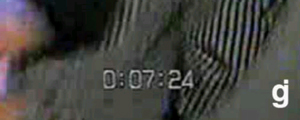
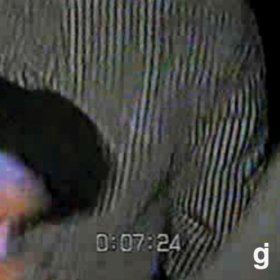 So most of these tracks have been unveiled under some guise or another already. Generous free downloads and innovative pizza-accompanied 7″s (available exclusively at a Long Island pizzeria and only announced on the day of release) show that the fairly recently reunited band are certainly determined to have fun with their craft these days. Despite playing shows again for a couple of years now, this release comprises the band’s first new recorded material in almost a decade. That’s a long time to keep your uber-fans guessing, especially whilst hinting at a third album constantly.
So most of these tracks have been unveiled under some guise or another already. Generous free downloads and innovative pizza-accompanied 7″s (available exclusively at a Long Island pizzeria and only announced on the day of release) show that the fairly recently reunited band are certainly determined to have fun with their craft these days. Despite playing shows again for a couple of years now, this release comprises the band’s first new recorded material in almost a decade. That’s a long time to keep your uber-fans guessing, especially whilst hinting at a third album constantly.

 As if to make a mockery of the music press’ overzealous list making in recent years,
As if to make a mockery of the music press’ overzealous list making in recent years, 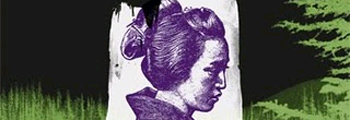
 While
While 
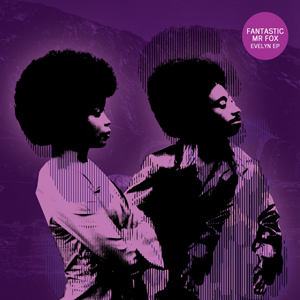

 “It’s just a bunch of radio rock bullshit”. A slightly harsh one-sentence review there, courtesy of none other than
“It’s just a bunch of radio rock bullshit”. A slightly harsh one-sentence review there, courtesy of none other than 
 Quentin Dupieux, known to most as Monsieur Oizo, has done something I’m sure many of us wish we could. That is, making a career out of being something of an amazing dickhead. His greatest success came in the form of a bassline he made while messing around with analogue equipment for a couple hours and a Jim Henson creation that caught jaundice and narrowly avoided getting run over (such is the ‘Flat’ in Flat Eric). His latter – brilliant – albums are an aural assault of disco, jazz, funk, IDM and techno that come in the form of something so unmistakably french it’s basically the musical equivilent of that scene in Gaspar Noé’s Irreversible; each note or horn sample hitting the eardrums just like a fire extinguisher to the face. The next step couldn’t have seemed more natural: making a film that celebrates the ‘no reason for this’, ‘for the fuck of it’ and ‘why the hell not?’ mentality of so many superb french directors by basing it on a telekinetic tire that rolls around on an on-going killing spree.
Quentin Dupieux, known to most as Monsieur Oizo, has done something I’m sure many of us wish we could. That is, making a career out of being something of an amazing dickhead. His greatest success came in the form of a bassline he made while messing around with analogue equipment for a couple hours and a Jim Henson creation that caught jaundice and narrowly avoided getting run over (such is the ‘Flat’ in Flat Eric). His latter – brilliant – albums are an aural assault of disco, jazz, funk, IDM and techno that come in the form of something so unmistakably french it’s basically the musical equivilent of that scene in Gaspar Noé’s Irreversible; each note or horn sample hitting the eardrums just like a fire extinguisher to the face. The next step couldn’t have seemed more natural: making a film that celebrates the ‘no reason for this’, ‘for the fuck of it’ and ‘why the hell not?’ mentality of so many superb french directors by basing it on a telekinetic tire that rolls around on an on-going killing spree.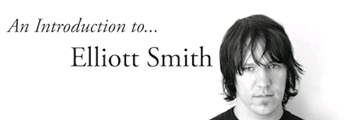
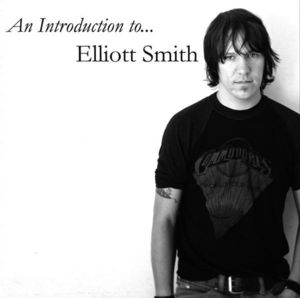 Seven years has passed since Elliott Smith’s untimely death (Suicide? Murder? Who knows…) and so it’s probably the perfect time to acquaint those too young to have appreciated him when he was around with the immense body of work Smith created. I’m sure there are also many who were aware of the singer/songwriter but never took the time to appreciate his work. Since Smith passed away, there have been two other major releases which undoubtedly held more interest for existing Elliott Smith fans than this latest one – ‘From A Basement on The Hill’ and ‘New Moon’. Those releases both included a hefty amount of previously unreleased material from the musical genius with ‘From A Basement…’ comprising much of the material that was intended for his next studio album. ‘An Introduction To…’ is more for those who never really had a chance to appreciate Elliott Smith’s music and need a good place to start. And a good place to start it is.
Seven years has passed since Elliott Smith’s untimely death (Suicide? Murder? Who knows…) and so it’s probably the perfect time to acquaint those too young to have appreciated him when he was around with the immense body of work Smith created. I’m sure there are also many who were aware of the singer/songwriter but never took the time to appreciate his work. Since Smith passed away, there have been two other major releases which undoubtedly held more interest for existing Elliott Smith fans than this latest one – ‘From A Basement on The Hill’ and ‘New Moon’. Those releases both included a hefty amount of previously unreleased material from the musical genius with ‘From A Basement…’ comprising much of the material that was intended for his next studio album. ‘An Introduction To…’ is more for those who never really had a chance to appreciate Elliott Smith’s music and need a good place to start. And a good place to start it is.
 I remember sitting on the edge of a friend’s questionable and crusty bedspread watching a collection of exciting new scene videos around the time when higher production values didn’t necessarily mean higher costs or higher creativity, and asking the owner of these foul sheets the following question: “mate, are skate videos ruining Belle and Sebastian or are Belle and Sebastian ruining skate videos?” Thankfully, that question isn’t at all relevant now regardless of what the early PWBC episodes may suggest but one thing was for certain, the Scottish band then were becoming a little too twee and to an extent obvious and annoying. Many of us had grew up associating with their pure honesty and irreputably superb songwriting abilities reminiscent of that ‘golden’ era or whatever you want to call it, and to see them actually turn the volume down themselves and fade into clichés of clichés of clichés that even critics couldn’t keep up with was somewhat upsetting. So here we are, four years after their last album which had that shitty little frog song on it (ok, I like it, whatever, but it’s very silly), and with Write About Love it seems that the band have returned to their original maturity with such grace I feel bad for ever doubting them.
I remember sitting on the edge of a friend’s questionable and crusty bedspread watching a collection of exciting new scene videos around the time when higher production values didn’t necessarily mean higher costs or higher creativity, and asking the owner of these foul sheets the following question: “mate, are skate videos ruining Belle and Sebastian or are Belle and Sebastian ruining skate videos?” Thankfully, that question isn’t at all relevant now regardless of what the early PWBC episodes may suggest but one thing was for certain, the Scottish band then were becoming a little too twee and to an extent obvious and annoying. Many of us had grew up associating with their pure honesty and irreputably superb songwriting abilities reminiscent of that ‘golden’ era or whatever you want to call it, and to see them actually turn the volume down themselves and fade into clichés of clichés of clichés that even critics couldn’t keep up with was somewhat upsetting. So here we are, four years after their last album which had that shitty little frog song on it (ok, I like it, whatever, but it’s very silly), and with Write About Love it seems that the band have returned to their original maturity with such grace I feel bad for ever doubting them.